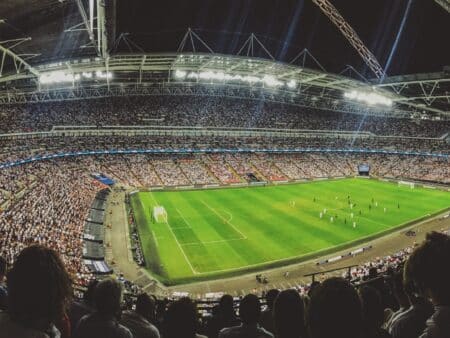From his days as a silky midfielder to his rise as the tactical brain behind one of England’s most exciting football teams, Mikel Arteta’s journey is nothing short of remarkable. Whether you’re a die-hard Gunner or a Premier League enthusiast, understanding Arteta’s evolution from player to Arsenal boss offers insight into how passion, strategy, and leadership redefine success in English football.
This article is worth your time because it not only breaks down Mikel Arteta’s playing days and coaching achievements but also uncovers the statistical backbone behind Arsenal’s recent revival. Let’s dive into the compelling football news that surrounds this Spanish professional football manager and former player.
Who is Mikel Arteta, and why is he important to Arsenal?
Born 26 March 1982 in San Sebastián, Spain, Mikel Arteta is a football manager and former player currently serving as the Arsenal boss. He is one of the few former Premier League midfielders who transitioned almost seamlessly into top-tier football management. Since taking over as Arsenal manager in December 2019, Arteta has rebuilt a struggling team into title contenders.
As a former Arsenal captain and now head coach, his dual legacy is deeply tied to the Emirates Stadium. Under his leadership, Arsenal began to show a more dynamic, pressing style of play, becoming a genuine force in the Premier League table. Arteta’s appointment marked a strategic shift in the club’s philosophy—backed by statistics and a modern footballing identity.
How did Mikel Arteta’s football career begin at Barcelona?
Mikel Arteta’s early career began in the prestigious youth academy of Barcelona, where he was a highly rated young talent. Although he didn’t break into the first team due to competition from stars like Xavi and Iniesta, his time at La Masia shaped his understanding of the game.
His career at Barcelona instilled a deep tactical knowledge and appreciation for positional football, which would become evident later in his coaching career. Although Arteta left without playing a senior game, the foundation laid in Catalonia would shape his vision both as a midfielder and as a manager of Premier League club Arsenal.
What were the highlights of Arteta’s playing career in Scotland and Spain?
Arteta moved from Barcelona to Paris Saint-Germain on loan before landing a permanent transfer to Glasgow Rangers in 2002. At Rangers, he enjoyed success, notably scoring in a title-deciding game on the final day of the season. His composure and technical skill in midfield made him one of the best players in the Scottish Premier League at the time.
Following his stint in Scotland, he returned to Spain to play for Real Sociedad. However, competition for places and limited opportunities meant his stay at Real Sociedad was short-lived. Still, these spells helped Arteta gain valuable experience in various European football cultures, crucial for his later role in the UEFA coaching system.

How successful was Mikel Arteta at Everton and Arsenal?
Arteta signed for Everton in 2005 and quickly became a fan favourite under manager David Moyes. As a creative midfielder, he racked up over 200 Premier League game appearances for Everton and was named Player of the Season twice. Games played by Mikel Arteta during his Everton spell showed a consistent contribution through goals, assists, and set-piece mastery.
In 2011, Arteta made a deadline-day transfer to Arsenal. He brought much-needed experience and was eventually named Arsenal captain. While injuries affected his final seasons, Arteta’s leadership was crucial during a transitional period for the Gunners. His 2014 FA Cup win with Arsenal was a career highlight, ending a nine-year trophy drought for the club.
What made Arteta a standout midfielder in the Premier League?
Midfielder Mikel Arteta was not known for blistering pace or flashy tricks but stood out for his intelligence, passing range, and set-piece delivery. As a deep-lying playmaker, he often controlled the tempo of games for both Everton and Arsenal.
Arteta’s Premier League stats reflect his importance—numerous assists, over 300 games played, and a key role in midfield for two major clubs. He was also praised for his consistency, leadership, and professionalism—traits that made him captain Mikel at Arsenal and a respected figure in English football.
How did Arteta transition from playing to coaching at Manchester City?
After leaving Arsenal in 2016, he was now known as manager Mikel Arteta after he joined Manchester City as an assistant coach under Pep Guardiola. The experience proved invaluable. Working alongside Guardiola, Arteta learned the intricacies of modern tactics, in-game management, and man-management.
During his tenure at Manchester City, the team won two Premier League titles, domestic cups, and set records for points and goals. Arteta would later use many of these insights as Arsenal manager. His time at City not only elevated his coaching credentials but also convinced Sky Sports pundits that he was a good coach destined for a major role.
What happened after Arteta’s appointment as Arsenal manager in December 2019?
Arteta’s appointment in December 2019 came during a turbulent period at Arsenal. Following the departure of Unai Emery and a short spell by interim head coach Freddie Ljungberg, Arteta was handed the reins. His first game in charge saw Arsenal draw with Bournemouth, but signs of change were already visible.
In 2020, Arteta guided Arsenal to an FA Cup victory, beating Chelsea and Manchester City en route—an early signal that the Gunners were back on track. He became the first Arsenal manager to win a trophy in their debut season since George Graham in 1987. Arteta’s first game may have been modest, but the trajectory since has been sharply upward.
How have Arteta’s Arsenal transfers reshaped the squad?
Under Arteta, Arsenal transfers have focused on young, technically gifted players like Odegaard, William Saliba, and Kai Havertz. Arteta signed multiple players who embody his philosophy—high work rate, tactical discipline, and ball control.
The January transfer window has also been used effectively to plug squad gaps. Arteta’s recruitment, in collaboration with sporting director Edu, has transformed Arsenal from an inconsistent Premier League team into serious title contenders. With players like Odegaard flourishing under his guidance, the Emirates Stadium has become a fortress once again.
What do Mikel Arteta’s managerial statistics reveal?
Mikel Arteta’s managerial statistics speak volumes. As of the 2024/25 season, he has managed over 200 games for Arsenal, with a win percentage above 60%. He led Arsenal to a second-place finish in the 2022/23 Premier League season and has achieved Champions League qualification twice.
Arteta’s Arsenal has been noted for defensive solidity and aggressive pressing. Under his tenure, Arsenal have beaten Premier League giants like Chelsea and Manchester City regularly. In 2023, he was awarded the League Manager of the Month on multiple occasions, further cementing his reputation among Premier League managers.
Can Arteta’s Arsenal win the Premier League title?
Arteta’s tactical evolution and squad building have positioned Arsenal as serious Premier League title contenders. In recent seasons, they have consistently challenged the likes of Manchester City, finishing just behind them in the Premier League table.
With continued investment, stability, and UEFA competition experience, Arteta would be expected to lead Arsenal to domestic glory. If his players maintain their form and fitness, and key signings click, winning the Premier League title is a realistic goal. Arsenal could also be dark horses in the Champions League or Europa League, depending on domestic outcomes.
Summary: Key Takeaways on Mikel Arteta’s Football Journey
- Mikel Arteta, born 26 March 1982, is a Spanish professional football manager and former midfielder.
- Began his career at Barcelona before successful spells at PSG, Glasgow Rangers, Real Sociedad, Everton, and Arsenal.
- Played over 300 games in the Premier League and was a two-time Player of the Season at Everton.
- Transitioned into coaching with Manchester City under Pep Guardiola.
- Appointed Arsenal boss in December 2019, replacing interim head coach Freddie Ljungberg.
- Won the FA Cup in his first season and guided Arsenal back into Champions League contention.
- Has managed over 200 games for Arsenal with a win rate above 60%.
- Notable Arsenal transfers under Arteta include Odegaard, William Saliba, and Kai Havertz.
- Sky Sports analysts often praise his tactical acumen and leadership.
- Arteta’s Arsenal is among the Premier League leaders and potential title challengers.
From a player of the season at Everton to manager of Premier League club Arsenal, Mikel Arteta’s journey is a blueprint for success in modern football. Stay tuned to Sky Sports and football news platforms as Arteta continues to script his legacy at the Emirates Stadium.














